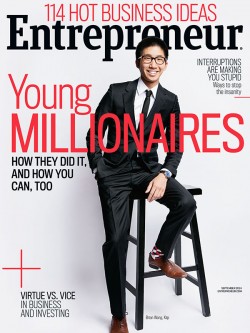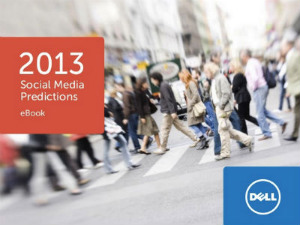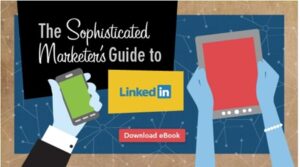
A never ending stream of high quality content simply isn’t sustainable for most organizations. But what if Marketers could tap into a rich source of content optimized for engagement, sharing and action?
This is the promise of co-created content and participation marketing. Not limited to influencers, participation marketing is to partner with others to create content that the community they are a part of would find useful. These co-creation partners might be existing customers, industry influentials, other connected businesses and individuals or even prospective customers.
A brandividual is popular. An influencer is effective at creating popularity.
While many see influencer marketing as a way to simply gain entry to an influencer’s network, there are many more dimensions to it than that. We’ve been experimenting with numerous influencer content projects over the past 3 years and have developed some exciting strategies and processes around influencer engagement and content co-creation.
Recently, Ann Handley of MarketingProfs (and Author of the new book, Everybody Writes) interviewed me on this topic for her column in Entrepreneur Magazine “4 Ways to Get Influencers to Spread Your Brand’s Message”.
Here is my Q and A prep for the interview offering insights into everything from defining what an influencer is to the top things to avoid:
How should a company define “influencer”? Are there benchmarks and best practices they might consider?
 An influencer has subject matter authority, credibility amongst a network and most importantly, the ability to affect actions amongst the network. The most common mistake businesses make with influencers is to qualify them based purely on network size (fans, friends and followers) and affinity to a certain industry or area of interest. Without the ability to affect the way a network thinks and how they act, an influencer isn’t really influencing anyone. They’re just a “brandividual”.
An influencer has subject matter authority, credibility amongst a network and most importantly, the ability to affect actions amongst the network. The most common mistake businesses make with influencers is to qualify them based purely on network size (fans, friends and followers) and affinity to a certain industry or area of interest. Without the ability to affect the way a network thinks and how they act, an influencer isn’t really influencing anyone. They’re just a “brandividual”.
Influencers can be people at large in an industry, they could be inside a company as subject matter experts or even amongst customers. Influencer relationships often include a value exchange of some kind and it’s up to the company and influencer to decide whether that’s an exchange of information or visibility or compensation.
Think about what you want the influencer to do, how will their involvement help your company reach a particular business goal? What will an ongoing relationship with influencers mean to your marketing and reputation?
Best practices for working with influencers includes a process of:
- Identification
- Qualification
- Engagement
- Recruitment
- Implementation
- Amplification
- Feedback & Optimization
- Ongoing Relationship
As companies become more influential themselves, they need to look in both directions. What I mean is, beyond picking the most popular, influential people is to identify up and coming influencers. Working with an established influencer makes them your friend for a day. Helping upcoming talent become influential makes them a friend for life.
What are some tools you can use to find influencers in your industry?
It’s often useful to start with executives, marketing, communications and product managers to develop a list of topical expertise and even nominations of specific individuals. Attending industry events can reveal influencers who are speaking and meeting them in person can initiate a relationship.

For example, working with Connie Bensen and Dell’s Social Media Predictions project, we took a seed list of influencers from marketing staff at Dell and expanded upon it using tools to find other influencers like those initially identified. That eBook has had well over 150,000 views and thousands of shares on SlideShare alone.
Those characterizations will be useful with influencer discovery tools like Followerwonk or Little Bird which both focus on Twitter. There are also robust paid tools like Traackr, BuzzSumo or GroupHigh.
After you use a tool to identify influencers for each topic, then you can bring that list back to your internal subject matter experts to manually review and filter. Of course, no influencer discovery tool is perfect. Correlation amongst multiple tools and sources might take more time, but it’s a best practice for distinguishing between brandividuals and effective influencers.
What’s the key to getting influencers to share your content for you?
First, create content worth sharing. Topics that address issues that are important to the influencer will get your foot in the door and useful, visually compelling content will inspire them to open that door and share. Reaching out blindly and asking to share doesn’t work as well as having a connection first and then asking.
Second, let the ego do the talking. Content that includes an influencer’s contribution will probably get shared even more. Because let’s face it, people love to see themselves get recognized. Better yet, ask them to participate in the creation of the content. However, when mentioning influencers in content it’s essential that it be credible, high quality and creative. Most influencers have caught on to the tactic of simply mentioning famous industry people just to get them to share. There must be value created that inspires and earns the share.

When we helped Jason Miller and Deanna Lazzaroni at LinkedIn create The Sophisticated Marketer’s Guide to LinkedIn, we identified and engaged with influencers best known as LinkedIn and B2B marketing experts. Then we asked them to share their best tips for marketing on LinkedIn which were included in the eBook along with advice from LinkedIn Marketing Solutions. The eBook has been shared thousands of times generating millions in new business. In fact, the ROI on this project is at 21,000% You read that right! We’re now helping LinkedIn create a follow up guide focused on Thought Leadership.
Third, make it fun and easy. When emailing an ask, make it funny or at least clever and especially easy for the influencer to share. Capture their attention, succinctly explain what it is and what you want them to do. Then offer pre-written social share text that’s even personalized just for them. You may even create a resource page with images and other share options for them to use.
When we create conference eBooks for events like Content Marketing World or MarketingProfs B2B Forum, we send image previews of the influencer’s page in the eBook along with prewritten tweets to give them a quick view of what the thing is and an easy way to schedule social shares.
Bonus – but not my favorite. Pay them. Either compensate the influencer with information, with promotion or with compensation to share your content. Once you start down this road, it’s pretty difficult to get off, so plan for continued compensation once you start.
Does influencer outreach have to be face-to-face, ideally? Or does it work online?
Influencer outreach can begin on or offline but I believe both are essential. A common scenario involves meeting an influencer in person at an event, connecting on LinkedIn and following up with an invite to work together.
Another would be to recognize influencers on a list, connect on Twitter, engage online and when a face to face opportunity becomes available, make a connection in person. There is no substitute for face to face, but many of our influencer relationships are only online.
If you give influencers something cool for free, is it okay to expect them to talk about the cool free thing?
An experienced influencer will understand the implied value exchange, but even with them, I’d recommend that expectations be communicated. “We know you love cycling and we’d love to send you a pair of our new cycling sunglasses to try out. Maybe even rave about! (but only if you love love them of course). That sort of thing.
If the cool free thing is highly relevant, creative or unique, there’s an equally high chance they will talk about it online and off. But there are no guarantees. So communication is key.
What’s the biggest mistake a business makes in trying to engage influencers?
Presumptive, high expectation pitches with no romance and little upside for the influencer. It’s the equivalent of a stranger approaching you and saying, “Let’s get married”.
The time to start creating relationships with influencers is long before you actually need them. If a company is thinking that working with influencers is even a remote possibility, they should start identifying, qualifying and engaging with them now. That way, when the time comes to work together on a project, there’s already some familiarity and credibility before “the ask”.
If you would like to get into more of the strategy and how-to tactics of influencer and content marketing, be sure to see my presentation at Content Marketing World next week:
Content + Influencer Marketing = Powerful Way to Grow Your Business
September 9th, 2014 – 3:30pm
Through several influencer content marketing case studies, this presentation will help you:
- Understand the difference between brandividuals and influencers
- Identify, qualify and recruit influencers
- Select the right topics and content formats
- Promote and measure influencer co-created content



